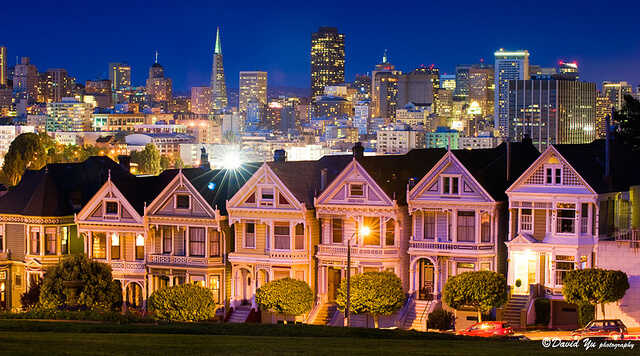Ricochet is the best place on the internet to discuss the issues of the day, either through commenting on posts or writing your own for our active and dynamic community in a fully moderated environment. In addition, the Ricochet Audio Network offers over 50 original podcasts with new episodes released every day.
 What Is Wrong with the Bay Area?
What Is Wrong with the Bay Area?
 I had no idea the coastal elite cities were this bad. I’ve lived in the San Francisco Bay Area for only a short time (since June), and I’ve already decided to leave early next year for greener pastures. I grew up only a hundred miles east of here near Sacramento, yet the Bay Area is more alien to me than Amsterdam was (where I worked one summer).
I had no idea the coastal elite cities were this bad. I’ve lived in the San Francisco Bay Area for only a short time (since June), and I’ve already decided to leave early next year for greener pastures. I grew up only a hundred miles east of here near Sacramento, yet the Bay Area is more alien to me than Amsterdam was (where I worked one summer).
I was shocked the other day to read a Brookings Institute report that claims the wages of poor working-class Bay Area residents have fallen $4,000 since 2007:
There are many ways of looking at inequality statistically; one useful way to measure it across places is by using the “95/20 ratio.” This figure represents the income at which a household earns more than 95 percent of all other households, divided by the income at which a household earns more than only 20 percent of all other households. In other words, it represents the distance between a household that just cracks the top 5 percent by income, and one that just falls into the bottom 20 percent. Over the past 35 years, members of the former group have generally experienced rising incomes, while those in the latter group have seen their incomes stagnate…
Growing debate about urban inequality suggests that the problem has gotten worse in recent years. But while inequality in cities is somewhat worse today than before the Great Recession, the trend is neither profound nor uniform. Overall, the 95/20 ratio across the 50 largest cities rose from 10.0 in 2007 to 10.8 in 2012. Not surprisingly, San Francisco experienced the largest increase in its ratio from 2007 to 2012. Income for its typical 20th-percentile household dropped $4,000 during that period, while income for its typical 95th-percentile household soared by $28,000. No other city saw nearly as large an increase in its rich households’ incomes.
I’ve not looked at the data directly, but I have a hard time believing this is due to anything other than deliberately-induced regional inflation.
To put it another way, the people here have used the power of government (state and local) to crush the wages of the poor people in this region. They’ve done this by making housing and energy astronomically expensive (especially housing), while blocking as much investment in those two areas as they possibly can.
What is wrong with these people? How can they believe one thing, but do the complete opposite?
Image Credit: Flickr user David Yu.
Published in General




Oh, I have. I didn’t move here by choice (I saw a chance to exit the ranks of the long-term unemployed and took it). I knew it would be bad, but actually seeing it was still a shock.
Exactly. Affordability mandates are nothing more than a way to exclude the middle class and segregate the poor.
Joseph Eager: #25 “This isn’t about the size of houses. My parents are renting a 2300 square foot house (with a three-car garage) in an upper-middle-class suburb of Sacramento for less than I’m paying for my measly half-bedroom apartment.”
Actually it is about “where” the house or apartment is located. Location, location, location. In the Bay Area they restricted building to specific areas, which are largely developed. In a case back in the 70s, the Diocese of San Jose wanted to sell off the property on which they had once had a seminary. The city in which it resided (on a hillside by itself) decided that they did not want that property sold to a developer.
Court fight. I don’t remember the outcome for sure, but believe that the diocese lost. The city or some other entity might have purchased the property to keep it from being developed, but the diocese did not get the money it expected to get based on property values for that city.
Sacramento and its suburbs don’t seem to have the same restrictions on building (anything) that exist in the Bay Area, which is good for your parents, and bad for you.
It’s the land of the zombies. The crazy thing is they don’t know it. God love ’em.